Jesus As God in Luke 1:14-17
Hey Bible Masters, today I want to show you how Luke presents Jesus as God from the Old Testament for the first time in his gospel account.
This is the next step in our study of Luke’s Gospel. If you want to watch the live stream version of this lesson, I will link the video at the end of this post.
Once you fully understand this as a Christian, it will totally change the way you live every single day God blesses you with.
Today we’re going to cover four verses (14-17) in chapter one, and they are powerful because this is going to build from the previous post.
John will prepare us for God who’s coming to save us.
Most of us know who John the Baptist is. And this sets the scene for what’s in store for today’s post. Because we’re continuing the conversation between the Heavenly Angel (who we haven’t even been personally introduced to yet) and Zechariah, the father of John the Baptist.
The 3 L’s
Today’s post is broken down into three sections. I’m calling it The Three L’s.

In the Three L’s,
We’re going to look at John’s life.
We’re going to look at John’s Lord.
And we’re going to look at John’s lessons for us.
We’re going to be weaving things throughout this post.
This is going to be Biblically based,
as we always do,
but at the same time, practical for us to move forward in regards to our day-to-day life.
The 7 Ps
From the beginning of this Gospel study, I presented what I call The 7Ps.
The 7Ps talked about
The person – who Luke was.
The period – when was this written.
The party – who was Luke writing to.
The peculiarities – the special things in Luke’s gospel account.
The potency – was it actually scripture or was it something else.
The potential problems – are there any challenges to this gospel.
And the positivity – why we can trust it today as Christians, and use it to help us build our faith.
The 4th P – Peculiarity
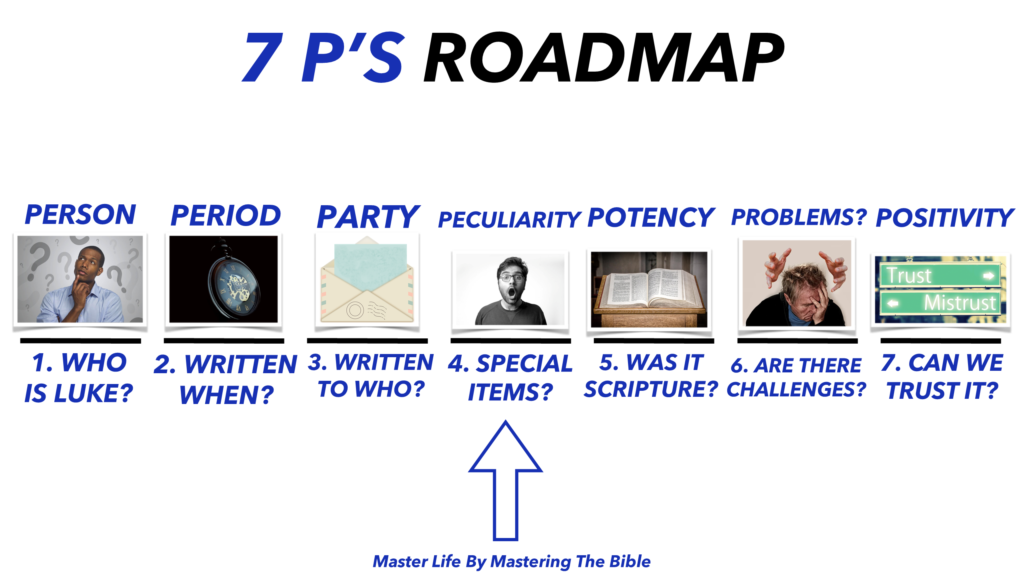
This post is specifically going to be on the special items – the fourth P – the peculiarities. You may be thinking at this point,
“Wait! hold on: if you’re talking about Jesus being God in today’s post Israel, and you’re saying this is the first time Luke presents Jesus as God in his gospel, what’s so special about that?”
And most people are probably going to be thinking,
well, John’s gospel account is the famous gospel account in regards to the deity of Jesus.
Now, all that may be true but at the same time, I want you to realize Luke is doing something very specific.
I’ll bring that out in today’s post.
John’s Life
In the previous post, we looked at John the Baptist’s father Zecharias.
As I spoke about before and I showcased a timeline regarding Zechariah and his wife Elizabeth.
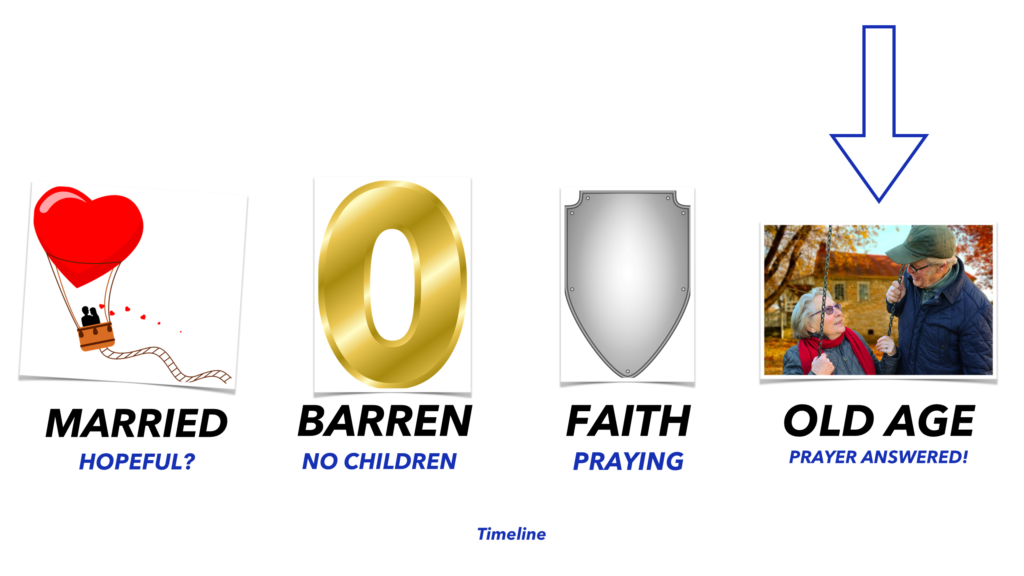
I described them as married, and hopeful they would have children. But at some point, Elizabeth realized she was barren.
At that point, many would give up, but instead Zechariah began to pray. But in old age, God answers their prayer.
As I mentioned in the previous post, one of the things that we as Christians have to do in all things is pray.
Their faith kicked in and we saw how God answered Zechariah’s prayer.
The Bible told us it would be John the Baptist as we know him today.
And we can say the rest is history.
Luke 1: 14-17 – Is Jesus God?
I want us to read the passage together.
I’m not going to highlight anything or break anything down.
It’s always important for you to read the Bible as a Christian.
Because that’s one way you can build yourself up.
Let the word sink into your spirit and allow the Holy Spirit to minister to you.
As you read it, if you have any questions, you can write them down and then post them in the comments section below this article.
Ask Questions
When reading the Bible, you should always have questions:
Why this? Why not this? God, what do you mean by this particular thing? Does this mean this? Does this mean that? etc
Then I will come back and break down the verses step by step.
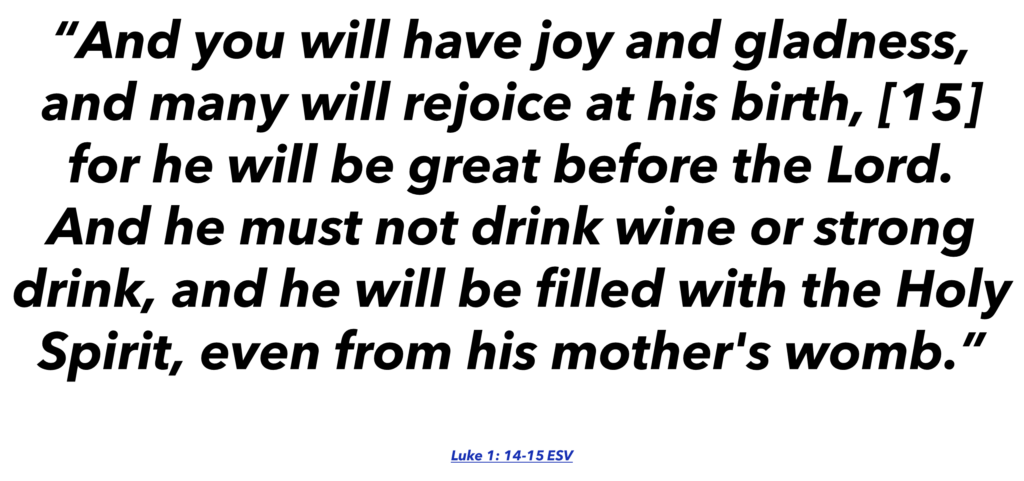
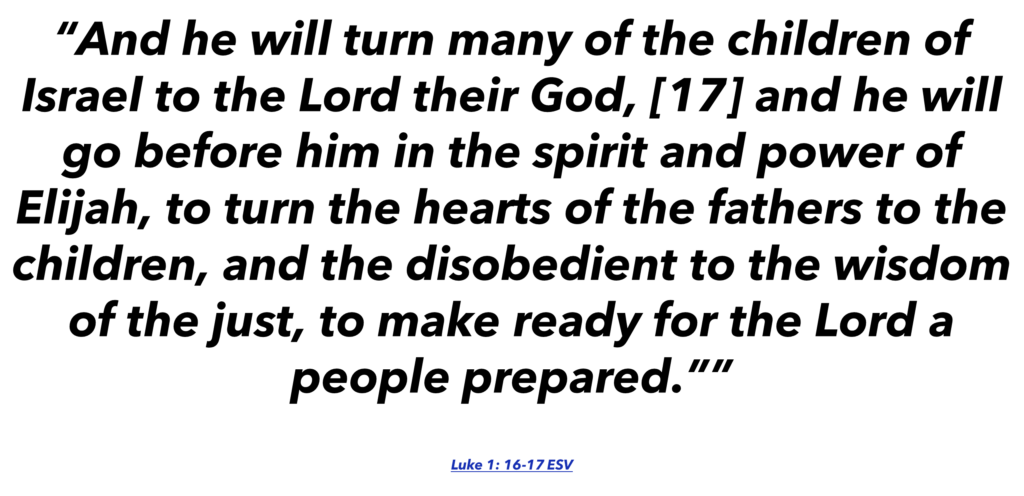
Luke 1: 14 -15 says,
[this is the Angel speaking] And you will have joy and gladness, and many will rejoice at his birth, for he will be great before the Lord. And he must not drink wine or strong drink, and he will be filled with the Holy Spirit, even from his mother’s womb.
He continues and he says,
And he will turn many of the children of Israel to the Lord their God. And he will go before him in the spirit and power of Elijah, to turn the hearts of the fathers to the children, and the disobedient to the wisdom of the just, to make ready for the Lord a people prepared.
Let’s go through these verses now.
Verse 14:
Verse 14 starts with the angel saying to Zechariah,
“and you will have joy and gladness”
Many will rejoice at the birth of John the Baptist.
And the first thing I want to highlight is very timely.
But one thing you’ll realize is, this is no different from many times all throughout history.
I want to highlight and remind you, children are a blessing from the Lord.
As we see in Psalm 127:3
Notice what it says,
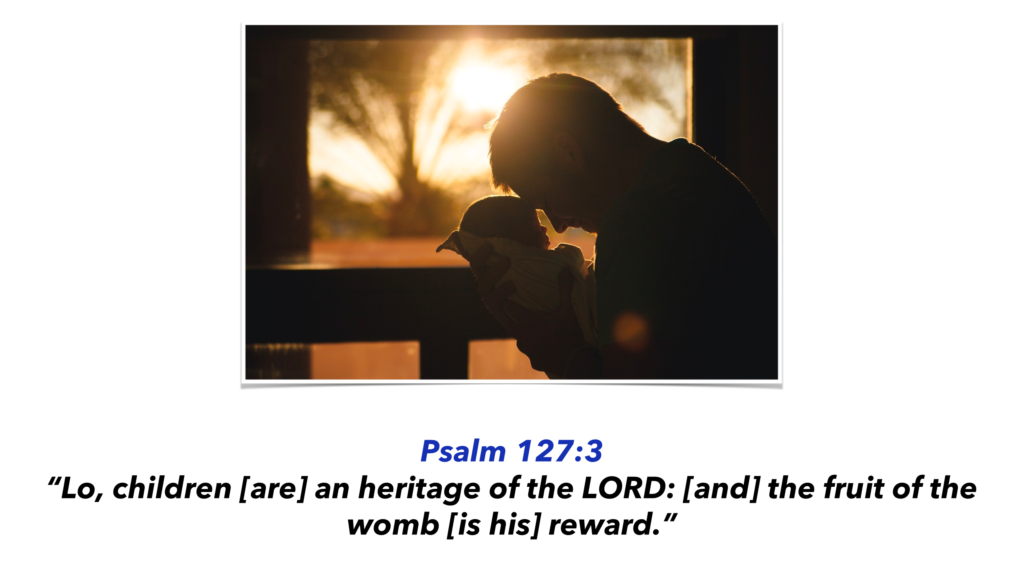
“Lo, children (are) a heritage of the LORD, (and) the fruit of the womb (is his) reward”
The day and age we live in are so frowned upon for people to have children.
And this is the furthest thing from the message we see all the way (contextually) throughout the biblical text.
(I mentioned this briefly in the previous post.)
Don’t ever allow the chatter all around to convince you, or to confuse you about the fact that children are a blessing from God.
This was one of the things the angel Gabriel highlighted.
Rejoicing and great joy would come with the birth of John.
Joy As Prophesy Is Fulfilled
Gabriel not only says it will bring joy and gladness for Zechariah and Elizabeth,
he said and many will rejoice at his birth.
It’s powerful! It’s easy to take for granted that we know who John the Baptist is,
But this is a testament in advance before he’s even born.
Before he’s even conceived in the womb.
The angel is proclaiming that John the Baptist is going to cause many to rejoice at his birth.
1. There’s obviously a local application.
Zechariah and Elizabeth, and their close-knit community at that particular point in time, will rejoice.
2. The Universal Application
At the same time, as I’ve kind of alluded to already, there’s Universal worldwide appeal we see so clearly today.

The angel was preparing Zechariah and Elizabeth.
Many people today can rejoice at the birth of John the Baptist, not only because he was such a great man of God on his own. But for who he prepared the way for.
And that mission would come about after.
The big theme I want you to really draw from today’s post is:
God Blesses You To Be a Blessing

The Narrative of Luke’s gospel account wasn’t a blessing for Zechariah and Elizabeth only. We also have the benefit of John the Baptist’s life.
You can see, many times, blessings that God gives to people go beyond the person.
I want you to think about this as you go through life.
When you think about the ways God is blessing you,
remember God is doing that to not only bless you…
He’s doing that for you to be a blessing to other people as well.
Don’t ever forget that!
The Bible says John had a message of repentance to the people he came in contact with.
We all have something great about us as children of God. And it’s our job on a day-to-day basis to live out the greatness the Lord wants to do in our life.
Shine God’s Greatness
There are so many verses I could reference,
but I want to pick out something specific from Timothy that I thought was actually really timely as I read it recently.
2 Timothy 2: 20 -21, Paul says,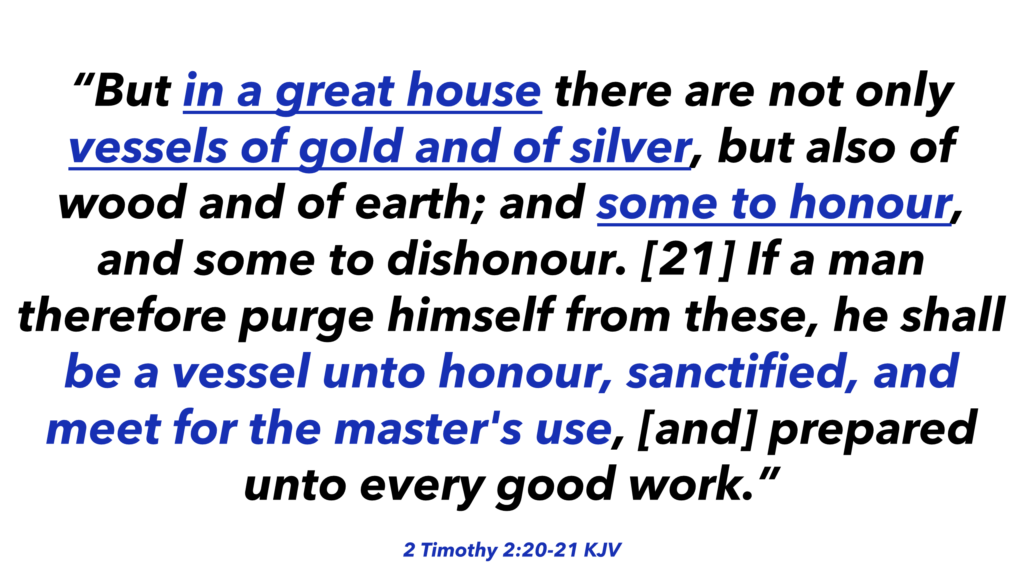
But in a great house there are not only vessels of gold and of silver, but also of wood and of Earth; and some to honor, and some to dishonor. [He says] if a man therefore purges himself from these, he shall be a vessel unto honor, sanctified, and meet for the Master’s use, [and] prepared unto every good work.
Paul’s talking about a great house.
The great house referred to in that passage is God’s house.
He’s saying there are vessels of Honor and vessels of Dishonor.
If you are a child of God, you need to understand just like the angel was telling Zechariah.
If you are in God’s house, you are supposed to be a vessel of gold and a vessel of silver. Gold and silver are not cheap. It is very precious and expensive.

Walk into the fullest application of what God has in store for you.
Here is an interesting story:
I used to not like Luke’s Gospel. I did not gravitate toward Luke. I preferred Mathew’s Gospel because Mathew always quoted scripture and was always writing about “it was written…, it was written…, it was written…”
But Luke did not quote scripture.

Luke does quote scripture over and over again but he’s doing it in a very subtle discreet way.
It’s almost like he’s dropping breadcrumbs, and whoever wants to go deeper can do so.
Verse 15
He mentions Chronicles and other books in the Old Testament but here in verse 15 he says,
John the Baptist will be great before the Lord,
and he says,
and he must not drink wine or strong drink.
The Nazarite Vow
Luke is referring to a Nazarite vow.
This goes back to the Old Testament.
He’s quoting Numbers 6.
John is following the footsteps of great people from the Old Testament, like the prophet Samuel, or Samson, who did many great works for the Lord.
But notice what he’s alluding to here,
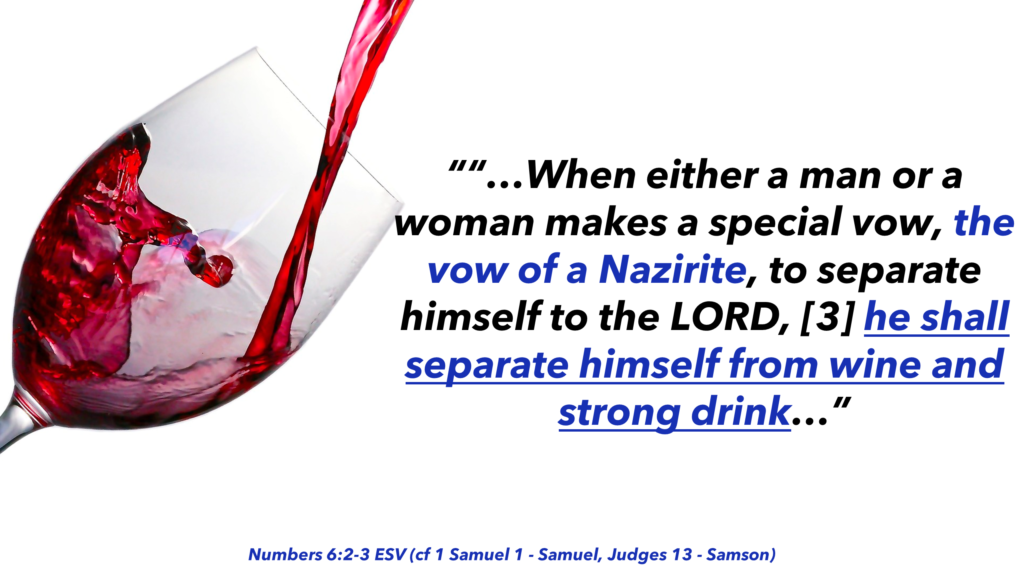
He says
when either a man or a woman makes a special vow, the vow of a Nazarite, to separate himself to the LORD, he shall separate himself from wine and strong drink.
The angel is telling Zechariah, John will be a set-apart person.
John was prophesied here to be great before the Lord.
John was a great messenger before the Lord. And this is because he set himself apart.
Notice what the verse says next,
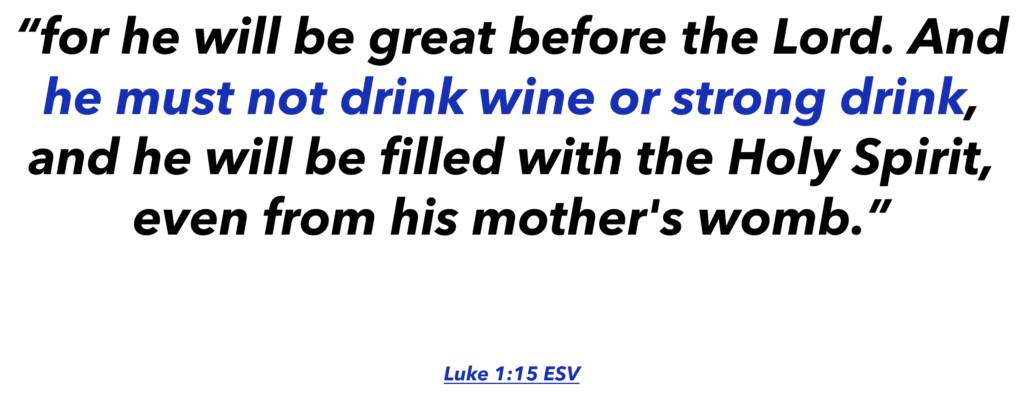
For he will be great before the Lord. And he must not drink wine or strong drink, and he will be filled with the Holy Spirit, even from his mother’s womb.
John’s Uniqueness
I want you to hone in on this particular phrase here – “from the womb.“
When you survey the Old Testament the point I want you to realize is, this was special.

When you do this, you see people like I mentioned the prophet, Samuel.
The Spirit of the Lord would come upon Samson (as you can read about in Judges). You can read about someone like King Saul in the Old Testament too. The Spirit of the Lord came upon him, but when he did evil, contrary to God, God removed his Holy Spirit from Saul.
The Holy Spirit would come upon people at different times in the Old Testament. And what we’re seeing here, with John the Baptist, is the climax of the Old Testament.
He was filled with the Holy Spirit from his mother’s womb which is totally unique.
John is unique.
But as Luke’s going to show you as we continue,
he’s unique in one sense,
but the one coming after him (Jesus) is unique and greater than him, in a whole completely other sense!
As we continue let’s look through these verses.
Verse 16
Verse 16 says,
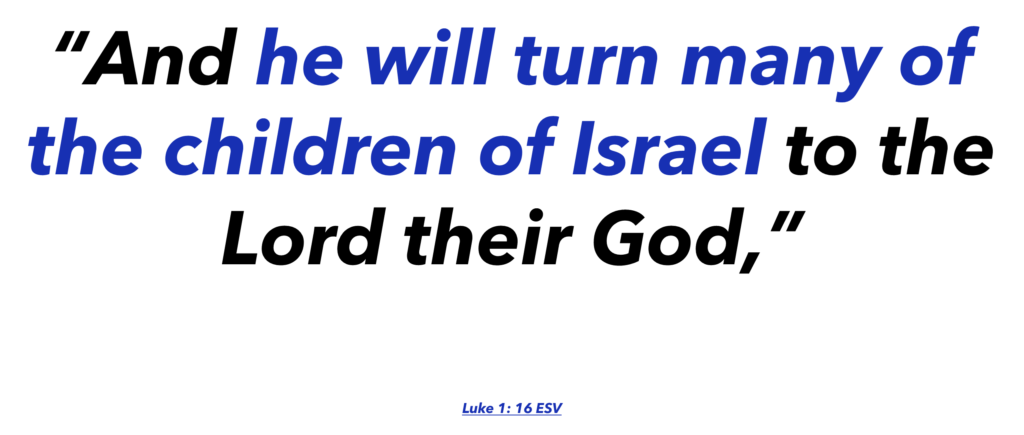
And he will turn many of the children of Israel to the Lord their God.
I mentioned it at different times in this series,
and it will continue to come up again.
Luke is picking up where the Old Testament ended.
We’re going to talk about that a couple of different times throughout today’s post,
One thing is, as the angel is speaking to Zechariah, the Israelites are waiting for their King.
When you go back to the Old Testament writings,
the way the Old Testament ends from a Jewish perspective, is with the book of Chronicles.
It ends with the Israelites being sent home.
You may not understand this as a Christian,
based on how our Bibles are constructed and formulated today.
I knew this before, but it was clearer to see last year when my wife brought me an English & Hebrew Old Testament Bible.
It’s easy to see when you get to the end of the Old Testament so to speak.
It ends with Chronicles, and when you read through Chronicles,
and when you get to the end of the book of Chronicles,
this is how Chronicles ends…
With a gentile King (Cyrus),
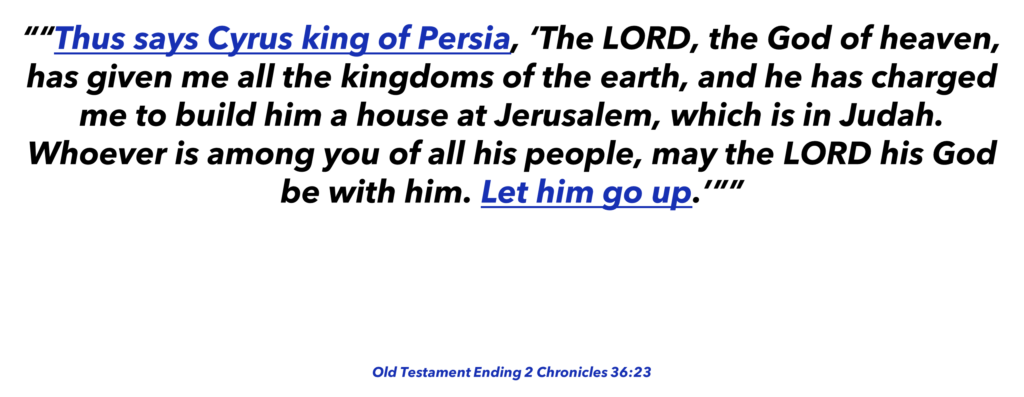
“Thus says Cyrus King of Persia, “the LORD, the God of heaven, has given me all the kingdoms of the earth, and has charged me to build him a house at Jerusalem, which is in Judah. Whoever is among you of all his people, may the LORD his God be with him. Let him go up.””
Quotes From The Old Testament
You see the Old Testament from a Jewish perspective ends with a gentile King letting the Israelites go home and build their Temple.
It ends in the completely wrong way.
The Messiah who would come and rule the whole world from Jerusalem would be an Israelite.
This is some of the stuff that the angel is preparing John for.
The king you’ve been waiting for,
the king who’s supposed to change things around is coming.
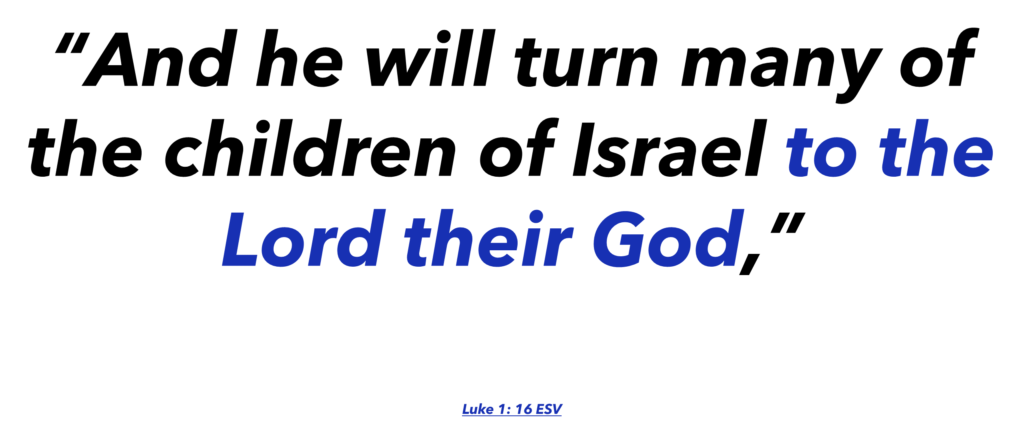
He continues,
he’s not only going to turn many of the children of Israel,
he’s going to turn them to the Lord their God.
And this is powerful because John will convert many to the Lord.
He’s going to have a big Ministry.
And like I’ve already said so far, we still talk about John the Baptist and the impact his ministry had.
and also the ministry he prepared the way for.
It’s interesting, (I’ll bring this out a little bit later) in this present age what are the Israelites who’ve rejected the Messiah waiting for?
Their King, just like at the end of the Old Testament, the Chronicles.
I mentioned Three L’s and I want to make sure we’re getting this and we’re all on the same page.
The first L was John’s life
and I want to highlight so far there’s going to be more as we continue.
So far we’ve seen that John’s life according to the angel,
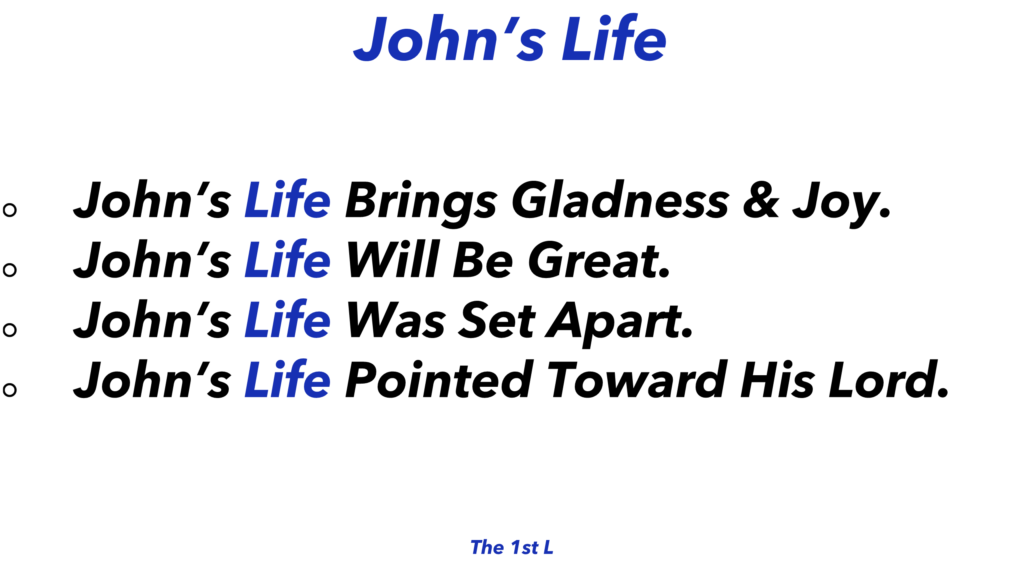
John’s Lord
Moving on to the second L, which is John’s Lord
Verse 17
In verse 17, it says,
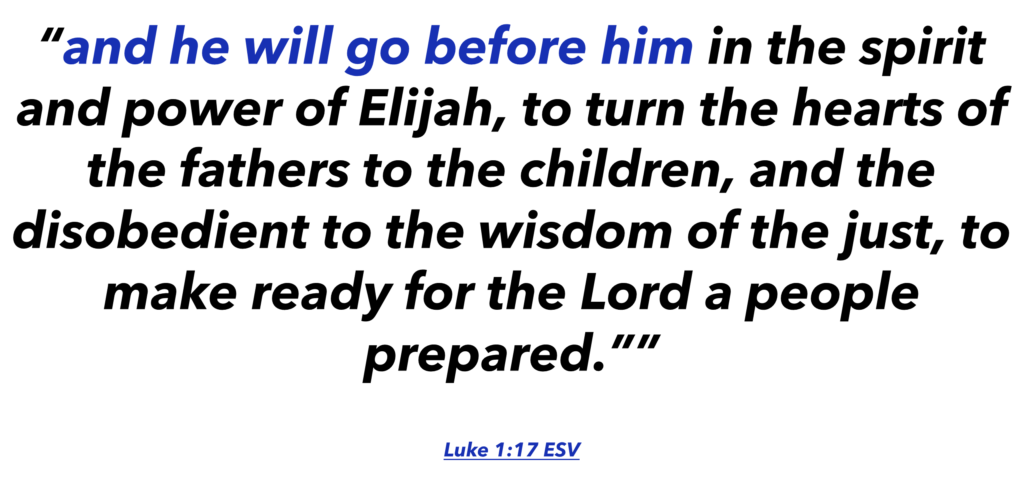
and he will go before him in the spirit and power of Elijah, to turn the hearts of the fathers to the children, and the disobedient to the wisdom of the just, to make ready for the Lord a people prepared.
I’ve got a really important question for you.

But I want to make it easy for you.
Let’s go back to verse 15 and work our way forward.
It says that “John will be great before the Lord and he must not drink wine or strong drink and he will be filled with the Holy Spirit even from his mother’s womb,’
and he, [John that is] “will turn many of the children of Israel to the Lord their God.”
[and he continues] “and he will go before him in the spirit and power of Elijah to turn the hearts of the fathers to the children and the disobedient to the wisdom of the just to make ready for the Lord a people prepared.”
I’ll ask you based on these four verses,
Who is the him that John will prepare for?
John, according to the angel, is preparing the people for the Lord!
*The Greek word Kurios means Lord.
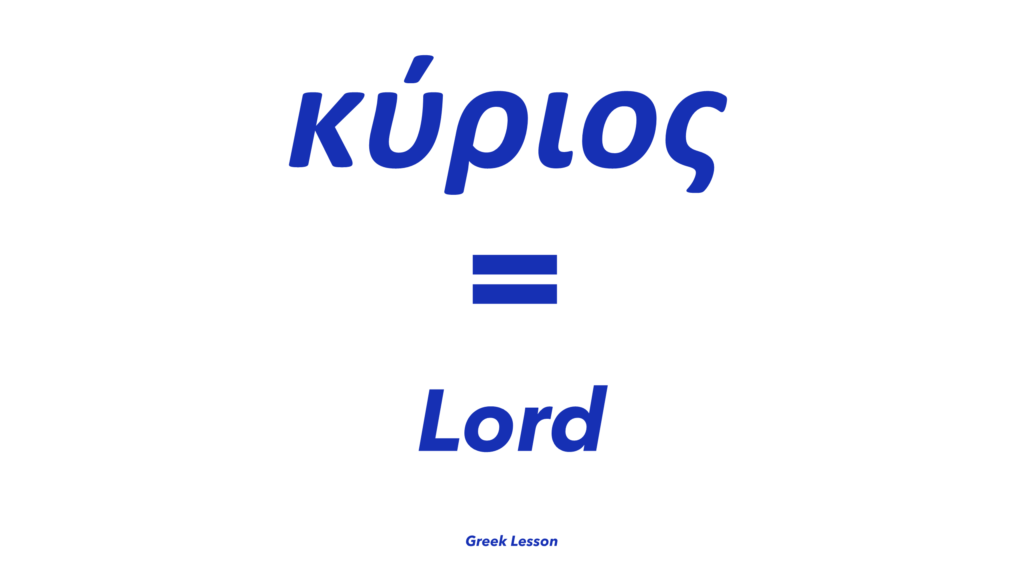
Luke is presenting Jesus as the Lord of the Old Testament.
The Peculiarities of John’s Lord
This post is focussed on the fourth p – the peculiarities.
Luke uses the word Kurios in a very special way.
The word Kurios can be used to mean Lord or master. But one reason we can be sure it means Lord here is the context in which Luke uses it when you go through Luke’s gospel account.
Every example in his gospel account except one refers to the Kurios as Jesus, or God the Father.
This suggests that Luke is using this word in a very special way.
The one example mentioned previously, the “Kurios“, has a kurios. And is ambiguous whether it is speaking about Jesus or God the father.
This helps paint the picture I’m trying to present to you in this post.
Context x2
Also Luke applies the Old Testament passages about God to Jesus.
And another thing,
Luke wrote Acts as well, but there was a period when Luke was written and Acts was not.
And this was something that Theophilus was able to read without the book of Acts.
Let’s Look At The Usage So Far
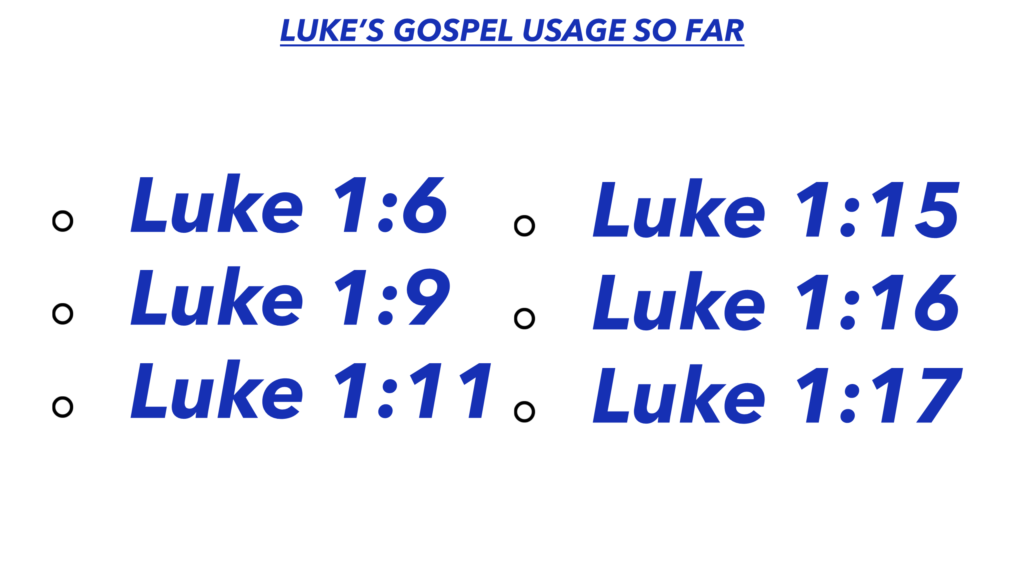 In verse 6, we read about the Commandments and statutes of the Lord.
In verse 6, we read about the Commandments and statutes of the Lord.
In verse 9, we read about the Temple of the Kurios – the Temple of the Lord.
In verse 11, we read about an angel of the Kurios – an angel of the Lord.
In verse 15, we read that John will be great before the Kurios – great before the Lord.
In verse 16, we read that John will turn many people to the Lord their God.
And in verse 17, we’ve seen that John the Baptist will prepare people for the Kurios – prepare people for the Lord.
This is significant and we can look at this a different way.
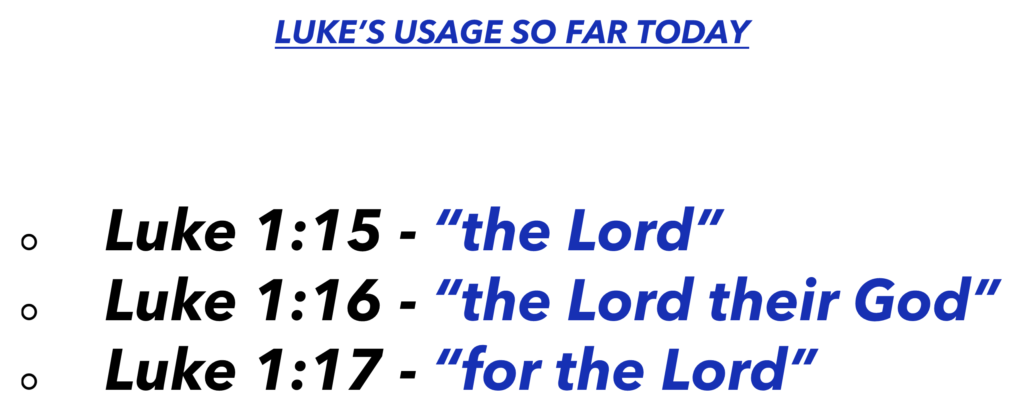
In verse 15 it was “the Lord”, in verse 16 it was “the Lord their God”, in verse 17 it was “prepared for the Lord”.
I want you to follow the logic here.
What does it present to us when we take out preconceived ideas?
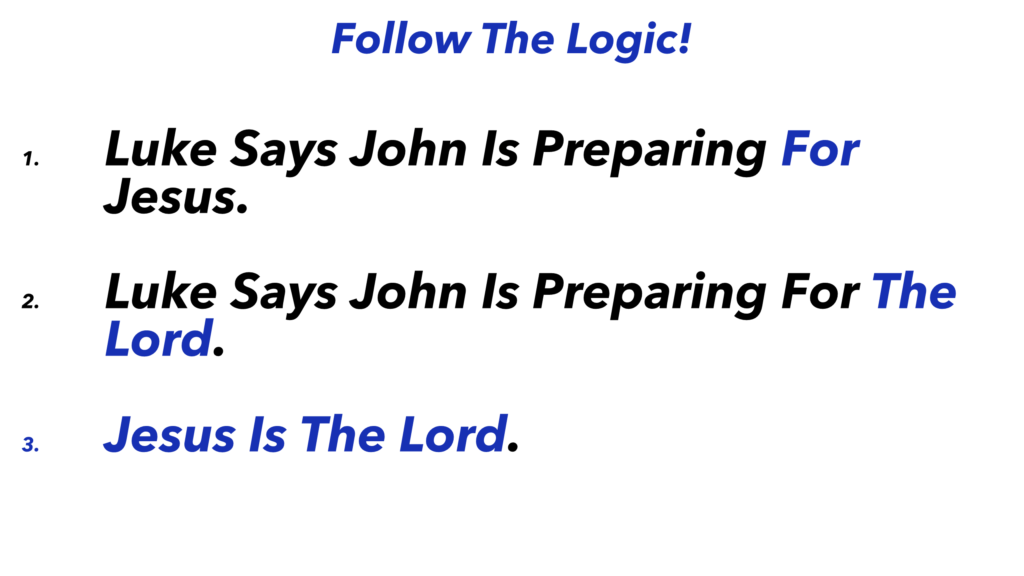 Notice what we see Luke saying, that John is preparing for Jesus.
Notice what we see Luke saying, that John is preparing for Jesus.
We know this; but at the same time Luke says that John is preparing for the Lord,
Luke is presenting Jesus as the Lord.
Christ is God!

I like the way Johann Albrecht Bengel[1]Johann Albrecht Bengel. Bengel’s Gnomon of the New Testament. Luke 1:16 in his commentary on these passages says,
(He breaks down the Greek construction of the verses),
and then he just says simply “Christ is, therefore, God!“
You see, we need to just let the Bible speak as Christians.
Read without any agendas, or trying to add anything to the text.
When we look at the construction, Luke is presenting that John is preparing for Jesus,
and he’s clearly presenting, John is preparing for the Lord.
If John is preparing for Jesus, and John is preparing for the Lord, who is Luke presenting Jesus to be?
He’s presenting Jesus to be the Lord.
Simply, he’s presenting that Christ is therefore God.
Verse 17 again says,
the angel said and he will go before him in the spirit and the power of Elijah.
Elijah’s Return?
Jews today expect Elijah to return.
They expect Elijah’s return before the Messiah.
I want to quote someone who’s not even a Christian.
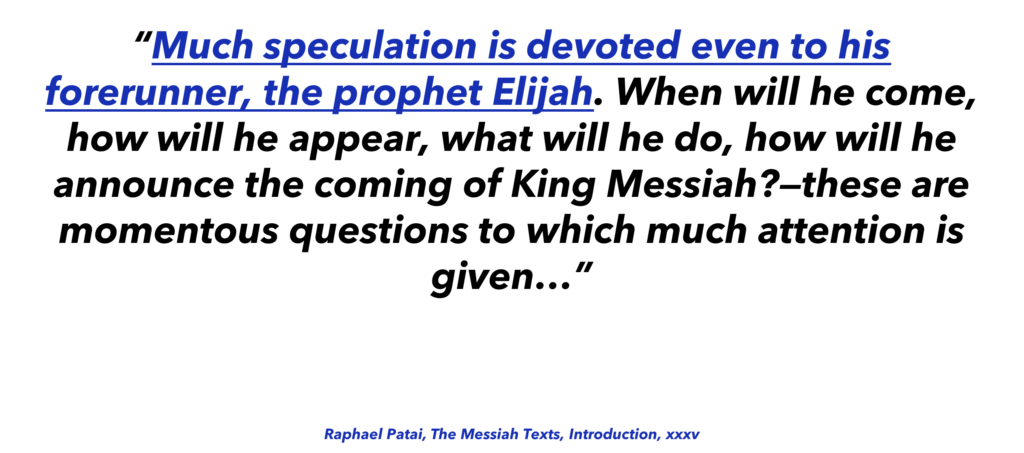
Dr. Raphael Patai’s book[2]Raphael Patai. The Messiah Texts. Introduction. xxxv, in his introduction, he’s speaking about the Prophet Elijah.
He says,
Much speculation is devoted even to his Forerunner the Prophet Elijah [he says] when will he come and how will he appear what will he do, how will he announce the coming of King Messiah?-these are momentous questions to which much attention is given.
He’s basically talking about how in Jewish literature, there is much documentation about the Messiah.
And before the Messiah Comes, The Prophet Elijah will step into the scene, and they’re asking all of these questions.
And it’s powerful because when we’re reading the New Testament, the angel is saying to Zechariah, John is going to go about in his ministry, in the spirit and the power of Elijah.
The angel didn’t say he would be Elijah, but he’s saying he’s following in the spirit and the power of Elijah.
But why is he doing that?
I’ll bring this up a little bit more.
It says,
he’s going to come in the spirit and power of Elijah to turn the hearts of the fathers to the children and the disobedient to the wisdom of the just to make ready for the Lord a people prepared.
I Dislike Luke!
Remember what I said earlier about not liking Luke?

This is another example of Luke doing what I didn’t know in my early days when,
1. I didn’t know much of the Old Testament
And,
2. When I was just fascinated by seeing it was written in New Testament writings.
He’s doing it again!
He’s quoting an Old Testament Passage!
Now, this is going to be vital because he’s quoting Malachi 4: 5-6.
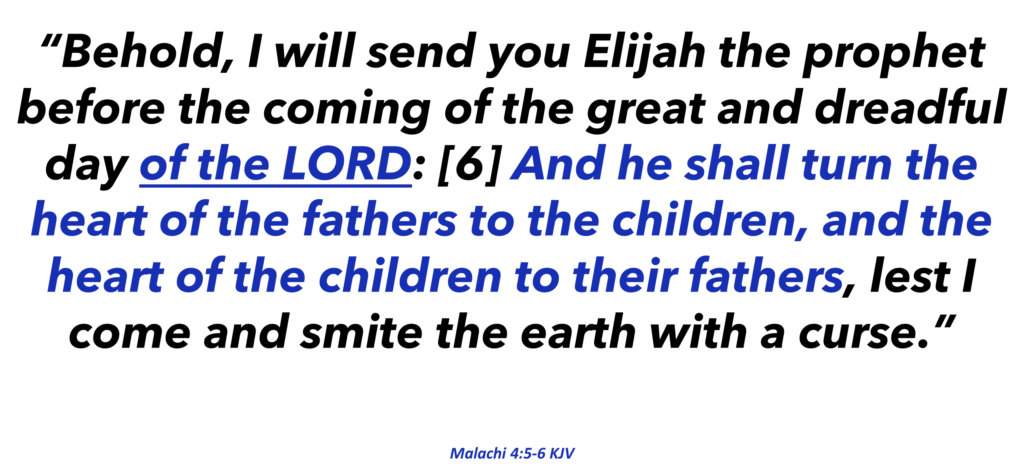
Behold, I will send you Elijah the prophet before the coming of the great and dreadful day of the Lord:
That’s the God of the Old Testament.
and he shall turn the heart of the fathers to the children, and the Heart of the children to their fathers, lest I come and smite the Earth with a curse.
If it wasn’t apparent from the start, this is God speaking in the Old Testament.
God is saying at the end of Malachi, he is going to send the Prophet Elijah to come before the great and dreadful day of the Lord…
Before his dreadful day – before He comes and judges the Earth.
Luke again in these verses is quoting the Old Testament.
Now you could imagine for someone like me who deeply loves God’s Word, how I started to feel when I saw so clearly, what Luke was doing.
The question I had at that point was, why would Luke do this?
Luke Was Educated
Once you start realizing Luke is an educated person, as I’ve mentioned in previous posts,
as well as my understanding,
my appreciation for Luke’s gospel account went to a whole other level as well.
That was way before we were even doing this.
The fact is, this study through Luke is taking it to a whole other level,
of my appreciation for God’s Word.
This showcases God’s power in so many different ways.
God said in Malachi he was going to send the Prophet Elijah.
Now the Angel said to Zechariah, John the Baptist will go in the spirit and power of Elijah.
But at the same time, it’s important you understand that since Malachi was written, Elijah has appeared at least one time.
Elijah has appeared at least one time since the famous account in three of the Gospel accounts.
All three Synoptics mention it.
One day Jesus takes three of his disciples Peter, John, and James up a mountain and for a short period of time, he lets them into something powerful.

He allows his glory to shine forth and his body was glistening.
And who appeared on the mountain with Jesus and the three disciples?
We heard the voice of the heavenly father saying, “this is my son listen to him,”
but notice what we see in Luke 9:28-30 which says,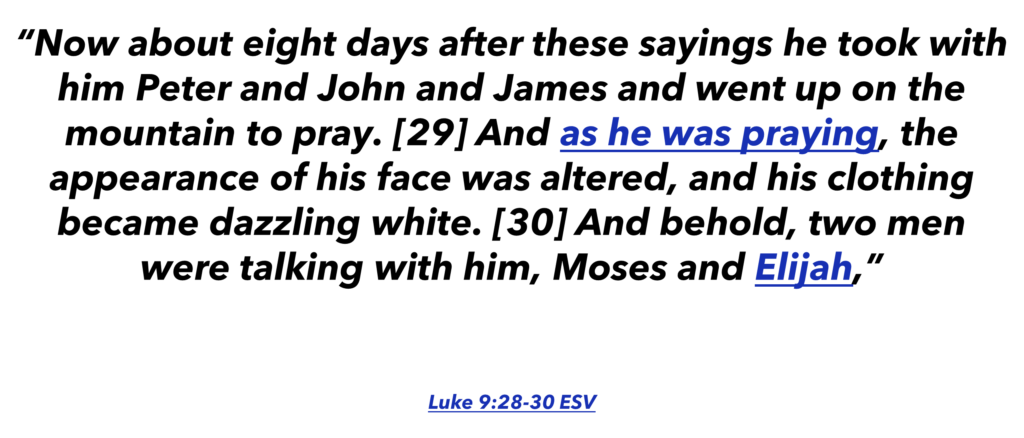
now about eight days after these sayings he took with him Peter and John and James and went up on the mountain to pray.
and as he was praying, the appearance of his face was altered, and his clothing became dazzling white. And behold, the two men were with him, Moses and Elijah.
You see,
John isn’t Elijah!
John the Baptist went in the spirit and power.
In Verse 17, he’s going to go (John the Baptist) before the Lord in the spirit and power of Elijah to turn the hearts of the fathers to the children and the disobedient to the wisdom of the just to make ready for the Lord a people.
It’s very simple what John the Baptist’s Ministry was going to consist of,
and in all honesty, I prefer the KJV translation of it because I feel like it runs smoother,
and also at the same time, I think it puts more emphasis on “the Lord.”
It says,
and he shall go before him in the spirit and power of Elias to turn the hearts of the fathers to the children and the disobedient to the wisdom of the just to make ready a people prepared for the Lord.
Notice, this is just a subtle change in the last couple of words of English, which puts all of the emphasis (I believe) onto the Lord.
This serves the point I’m trying to make in today’s post.
We’ve seen all these different examples, but notice now we’re going to hone in to this particular part of the verse,
and he shall go before him in the spirit and power of Elias to turn the hearts of the fathers to the children and the disobedient to the wisdom of the just to make ready a people prepared for the Lord.
Remember I spoke about how the Jewish Old Testament ends with Chronicles, that’s how they formulated the Old Testament.
We’ve got the same books in a different order.
Your order of the Bible ends with Malachi.
The Christian Old Testament ends with a promise from God, that He’s coming.
I’m going to send Elijah, and then I’m coming onto the scene.
I mentioned this already:
So far Luke is picking up the mantle from the Old Testament scriptures, and beginning his gospel account in that particular way, in that particular mode.
So, notice he’s quoted and alluded to multiple Old Testament passages without even referencing them.
John’s Presentation of Jesus
Now, John is someone who’s going to prepare the people for the Lord (the Kurios).
This is why it’s quite clear as we go through Luke’s gospel account.
He’s presenting Jesus as the Lord of the Old Testament.
He’s presenting Jesus as God if you want to put it like that.
God is speaking again and notice what he says,
Behold I will send my messenger and he shall prepare the way before me, and The Lord whom ye seek shall suddenly come to his Temple, even the messenger of the Covenant whom you delight in, behold he shall come says the Lord of hosts.
Let me give you a quick Hebrew lesson.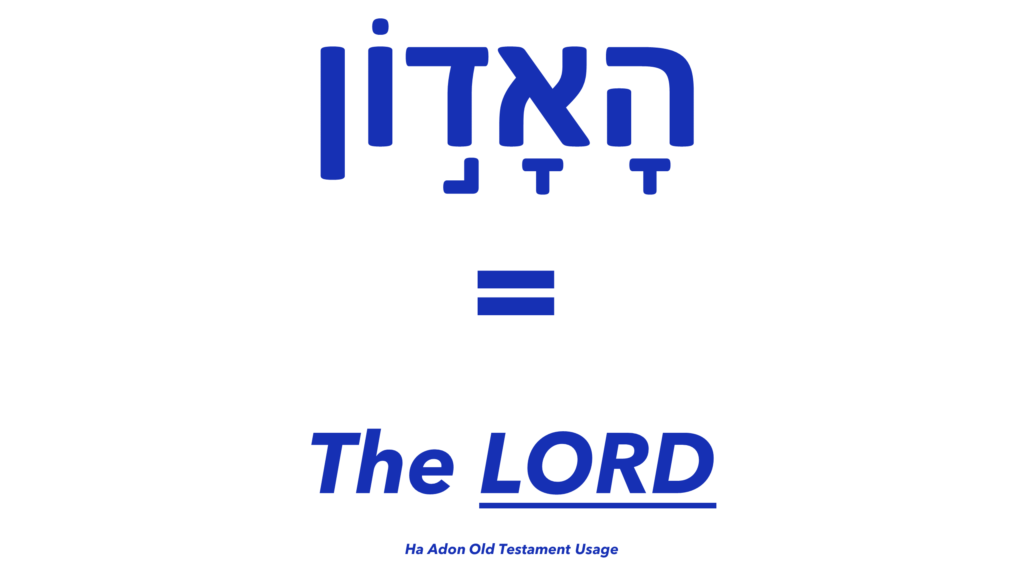
The lesson here now is the construction of “Ha Adon” from the Old Testament. Ha Adon is significant because it only applies to God in the Old Testament. Some people try to get around the force of Malachi 3:1 and how it’s used in the New Testament writings but especially in Luke’s gospel account,
because Luke alludes to it more than the other gospel writers.
John is preparing for God in the flesh and we’ll see this brought out again but it alludes to other passages in the Old Testament like Isaiah 40:3-5.
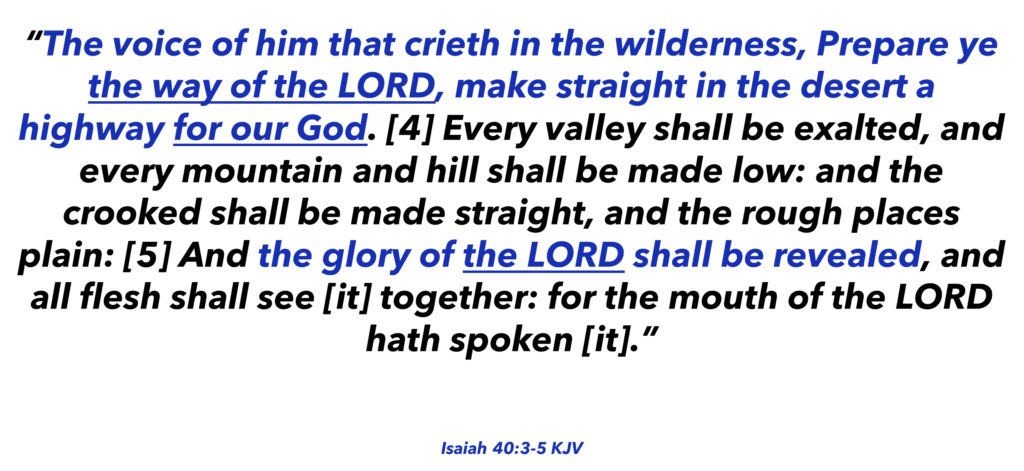
The voice of him that cries in the wilderness, prepare ye the way of the Lord, make straight in the desert a highway for our God. Every Valley shall be exalted, and every mountain and hill shall be made low: and the crooked shall be made straight, and the rough places plain: And the glory of the Lord shall be revealed, and all flesh shall see [it] together: for the mouth of the Lord has spoken [it].
The Lord says many different times in the Old Testament, He’s coming.
In some of the examples I’ve shown you today, it’s the Lord speaking.
And you see this all the way throughout the Old Testament.
He’s saying, look there’s going to be a messenger that’s going to come.
We see quite clearly the messenger is John the Baptist,
the one who comes in the spirit and power of Elijah.
Luke will go on to use this passage in Isaiah 40, quite clearly when we get to Luke chapter 3.
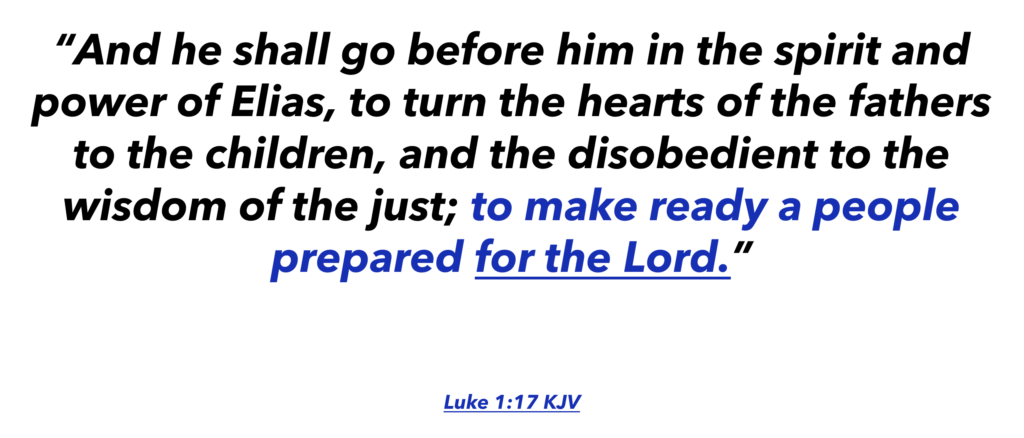 and he shall go before him in the spirit and power of Elias to turn the hearts of the fathers to the children and the disobedient to the wisdom of the just to make ready a people prepared for the Lord [the Kurios].
and he shall go before him in the spirit and power of Elias to turn the hearts of the fathers to the children and the disobedient to the wisdom of the just to make ready a people prepared for the Lord [the Kurios].
I want to highlight a quote from a scholar I think is quite interesting.
It’s quite clear, in my opinion, when we look at what’s being set up by Luke here,
what John is preparing for, and what Luke is presenting.
John will prepare the way for the Lord Jesus who is going to come after John.
Luke is presenting Jesus as the Lord of the Old Testament, especially in the way in which he uses the word Kurios.
I want to highlight this quote from a scholar.
Dr. C. Kavin Rowe[3]Dr C. Kavin Rowe. Early Narrative Christology (The Lord in the Gospel of Luke). Pg. 45 wrote something in his book.
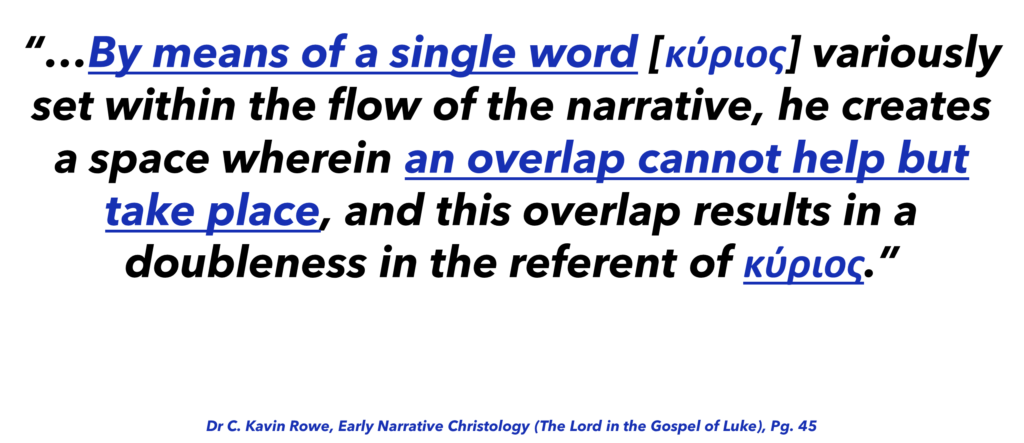
I want to quote from another scholar who spoke about this as well:
Dr. Ian Howard Marshall, in his book[4]Dr I. Howard Marshall. Luke: Historian & Theologian. Pg. 166 says,
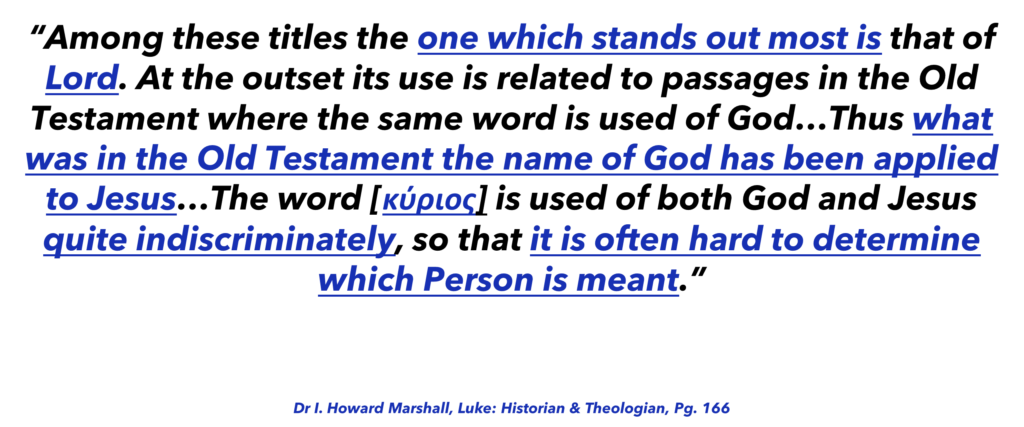
Dr. Marshall here in his book is basically saying that Luke uses the word Kurios more than any other gospel.
I gave you examples earlier in Malachi chapter 4:5-6, Malachi 3:1.
Luke is using these Old Testament passages that are about the God of the Old Testament,
the God of the Bible,
and he’s applying them to Jesus.
But the last part I quoted is, I think, the most startling and the most interesting.
He says,
is used for God and Jesus so indiscriminately that it’s often hard to determine who is actually being spoken about.
Now, think about this:
Why would Luke make it hard for people to determine who he’s speaking about when he’s using the word Kurios when referring to Jesus and God?
Does Luke want us to think that Jesus is the Lord of the Old Testament?
It highlights what Luke is doing.
Is Luke A Fool?
Some scholars actually believe that Luke is just a fool.
He doesn’t know what he’s doing.
He just made this happen.
Not “by chance”, but there’s no rhyme or reason to this particular usage.
But that’s obviously not the case.
One last thing about Dr. Marshall’s book.
At this particular point in time, when he’s saying all of this stuff, he’s referring to the book of Acts.
And it’s powerful because everything he says applies to the Gospel of Luke.
Scholars will go a different route. When you look at the scholarship, people say that Jesus is not being discussed here in this particular set of verses.
And they’ll give reasons why which we’ll discuss next.
Reasons People Give On Why This Is Not About Jesus
Rebuttal 1:
Dr. Raymond E Brown[5]Dr Raymond E Brown. The Birth of The Messiah. Pg 261-262 says this cannot be speaking about Jesus because “Christ does not exist in the narrative yet!“
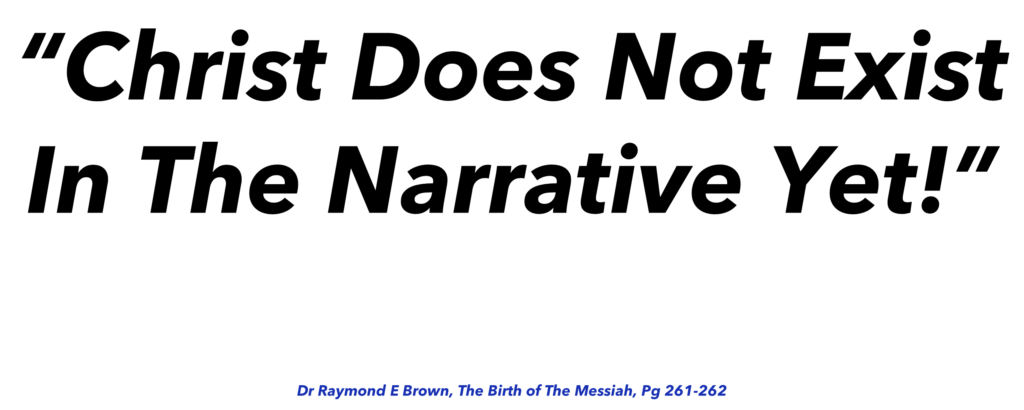
And this is one of the most intriguing rebuttals.
You have Scholars that will talk about the rules of “narrative“.
They say things may not necessarily apply to someone if they’re not expressly mentioned in the narrative.
What they mean by that is because Jesus has not shown up literally in The Narrative of the Gospel so far, this cannot be speaking about Jesus.
So, as we go on in chapter one, we hear about Jesus’ birth being prophesied,
just like John’s birth is being prophesied now,
then Jesus is a character in the narrative, so to speak.
And as I thought about this, there were a couple of things I thought of which I think are beneficial to this particular kind of reasoning.
Repeated Usage To Drive The Narrative
The first thing I think is significant is Luke’s repeated usage and theme throughout the gospel.
In verse 17 for example John is preparing the way for the Lord
in verse 76 of the same chapter, John is preparing for the Lord.
John is preparing for Jesus clearly in :76 and scholars know this.
At this point, Jesus is in the narrative.
In Luke Chapter 3:4 , he’s again going to be pointing to John preparing for the “Lord”.
And he’s going to quote Isaiah in chapter 40.

In Luke chapter 7:27, again Luke is presenting John as preparing for the Lord,
But in that passage, Jesus is speaking about John preparing for Him.
And I’m really looking forward to getting to this passage.
And when I think about “Jesus doesn’t exist in the narrative yet,”
I think, well, Luke is going out of his way, over and over again, to use this John and Jesus theme.
The Third P – the party
Who is Luke actually writing to? We talked about who Theophilus is in a previous post.
He has insights about this account before he’s even reading it,
and clearly, Jesus’ resurrection was pivotal to the Gospel message.
At the same time, when we look at the gospel, we can have insights to it before we’ve even read any of it.
And Theophilus can have insights before having read any verses or words in the gospel account.
Jesus was clearly something Theophilus knew about,
and so tightly knit with Jesus’s Ministry and Jesus’s life was that of John the Baptist who prepared the way.
The only thing I’m presenting and arguing for this particular post today is,
It’s a problem if you are not willing to accept that this could be speaking about Jesus because of the logical implications.
Which means Jesus is the God of the Old Testament.
Luke is highlighting that Jesus is divine. But he, (like other new testament writers) makes it clear, Jesus is God The Son.
This is how we get to the trinitarian language of father, son, and Holy Spirit now.
Rebuttal 2: Verse 17 Flows Back To 15

Some scholars[6]Darrell L. Bock. Luke: Volume 1. 1:1-9:50. Pg 88 argue verse 17 goes back to verse 15 which speaks about God the father.
I have no problem with this view.
My argument is that Luke is creating this ambiguity right from the beginning.
Rebuttal 3: Jesus Is Not God
Another rebuttal you see sometimes in regard to this is a common rebuttal from Islam or unbiblical unitarians or even some atheists.
In the New Testament God is just working through Jesus.
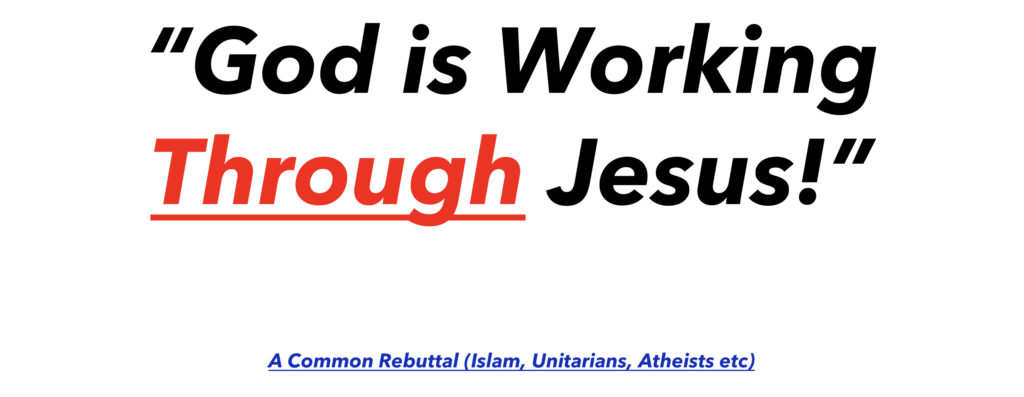
Now, there are a couple of problems with this.
First and foremost if we take this sort of argumentation as we’re reading through these verses,
if God is working through Jesus, the question becomes, “isn’t God working through John?”
Even if you think and admit and accept that,
“God may be working through John, but God is working through Jesus on a whole another level.”
That’s not the context in which Luke is actually speaking about.
We believe that Father, Son, and Holy Spirit work in unity.
So, if God is working through John and God is working through Jesus,
why would it be constructed this way?
And that goes on to the second point:
The Bible doesn’t say in this passage, that God is working through Jesus.
The Bible says that God is going to send a messenger, John the Baptist, and he will prepare the way for the Lord.
And that Lord Luke is talking about and referencing, based on the Old Testament passages, is the God of the Bible. That’s what the Bible says.
And those are two reasons we could look at people trying to make this argument and realize it’s not actually that significant now.
John’s Lord
The second L just to recap was a big chunk of today’s post.
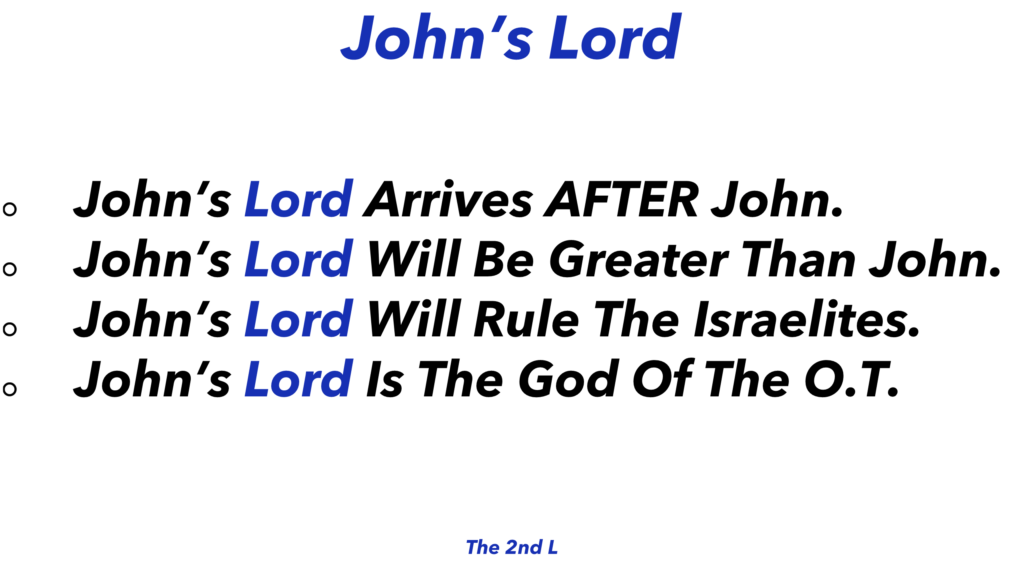
We see that John’s Lord arrives after John.
We also see John’s Lord will be greater than John.
We see John’s Lord will rule the Israelites,
and John’s Lord is the God of the Old Testament.
Clearly, if we let the Bible speak.
Who’s speaking in the narrative?
I’ve said it so many times so far today,
that you should remember. But if you haven’t remembered, this is Angel Gabriel speaking.
This is important because it showcases to you that the angel Gabriel was saying this stuff.
This isn’t a man – a mortal man or a woman – saying this stuff.
It’s not someone like me saying “Jesus Is God”.
Presenting this stuff is the Angel Gabriel, saying that John the Baptist will prepare for the God of the Old Testament.
The reason this is vital is, the angel Gabriel currently has a different viewpoint than we do here on Earth.
And in the Heavenly realities, that angel Gabriel was able to experience, is completely different from what we can experience in a physical body here on Earth.
You see it gets deeper though;
Luke is writing this, so this is Luke’s narrative.
Luke, as we’re going to see, is presenting Jesus as the Lord. But Luke is claiming the angel Gabriel, one of the most powerful angels we see all the way throughout the Bible, is proclaiming Jesus will come after John the Baptist. And he will fulfil the role of the God of the Old Testament.
He is proclaiming that Jesus is God which is powerful.
Conclusion
Before I wrap up let’s recap what was covered so far in today’s post: Luke is presenting that God is coming to save us.
I showed you John the Baptist will prepare the people for the Lord.
I showed you Luke uses the Lord (Kurios) more than any other gospel account.
I also showed you Luke’s gospel is riddled with many Old Testament aIllusions rarely quoted directly.
And I mentioned Luke presents Jesus as the God of the Old Testament,
who is coming to save us.
I also mentioned Luke reveals Jesus is Lord (before his incarnation),
and I mentioned Luke says the angel Gabriel proclaims Jesus is the God of the Old Testament.
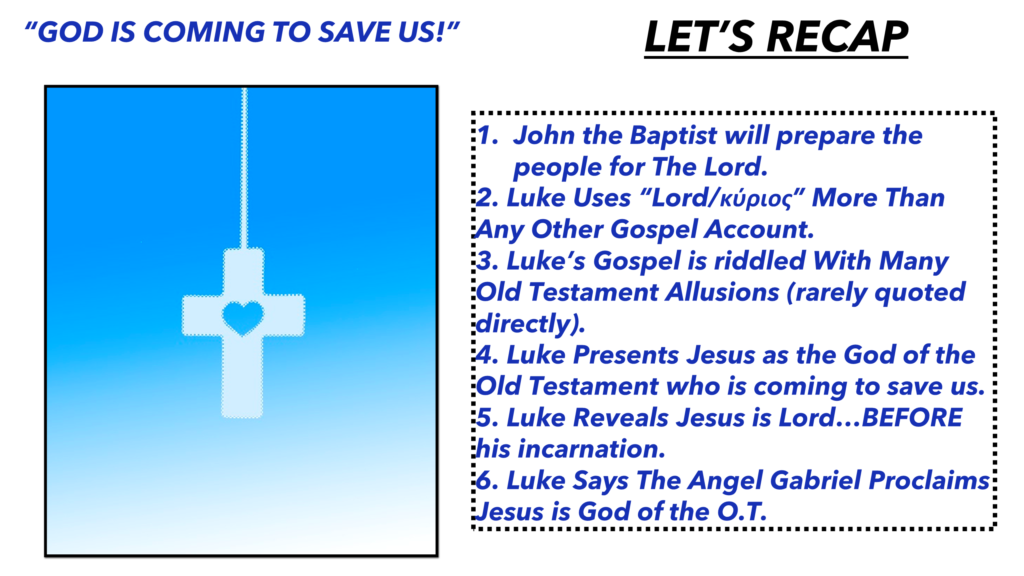
I mentioned the Three L’s in today’s post.
I want you to now focus on the third and I’ll just recap and give you some application to really take home from today’s post.
Lesson 1:
John will be great before the Lord. How? By yielding his life to serve and prepare people for the Lord.
That is how John will be great.
One way you can be great, is to yield to God with your whole life.
Just as John the Baptist is being described in today’s study, he will yield his life.
He will be set-apart and this is how he will be great.
Lesson 2:
Another way we can practically learn from John’s life today is by realizing we stand in the place of John the Baptist.
We are supposed to prepare those we come into contact with for the Lord.
Because the Lord is coming. This is powerful because there are double meanings all over.
John the Baptist in his day was “preparing” for the Lord, and the Lord came, died on the cross, and saved us all.
In the same way, we are to prepare people today for the Lord to come the second time and “save us”.
Prefer to Watch? Here is the Livestream video:
If you enjoyed this post, please share it with a friend. Let me also know what lessons you picked up from it in the comments section below.
References
| ↑1 | Johann Albrecht Bengel. Bengel’s Gnomon of the New Testament. Luke 1:16 |
|---|---|
| ↑2 | Raphael Patai. The Messiah Texts. Introduction. xxxv |
| ↑3 | Dr C. Kavin Rowe. Early Narrative Christology (The Lord in the Gospel of Luke). Pg. 45 |
| ↑4 | Dr I. Howard Marshall. Luke: Historian & Theologian. Pg. 166 |
| ↑5 | Dr Raymond E Brown. The Birth of The Messiah. Pg 261-262 |
| ↑6 | Darrell L. Bock. Luke: Volume 1. 1:1-9:50. Pg 88 |






















Recent Comments